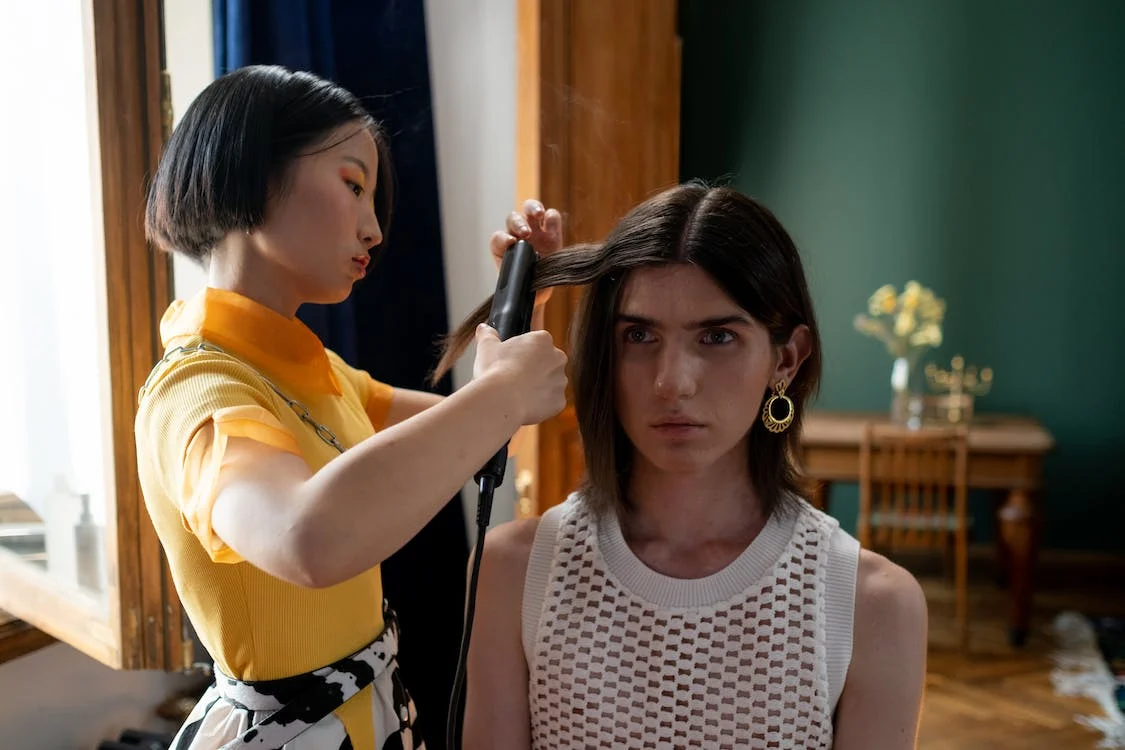For decades, hair straightening treatments have been a popular choice for individuals seeking smooth, straight hair. Recent litigation and studies, however, have drawn attention to the possible health hazards linked with the use of these products.
A recent article published in The Chicago Crusader reported that a federal court in Chicago is preparing for a massive class action lawsuit, which is anticipated to involve millions of African-American plaintiffs across the United States. This lawsuit could potentially become one of the largest class action lawsuits the country has seen in decades.
Understanding the possible hazards and your legal rights is crucial if you have used hair straighteners and are worried about your health. In this piece, we’ll talk about the potential health dangers posed by hair straighteners and what customers can do to safeguard themselves.
The Health Risks
Researchers have linked the use of hair straighteners with an increased risk of uterine and breast cancer. According to a post on Drugwatch, endocrine-disrupting chemicals (EDCs) found in chemical hair straighteners are responsible for the increased cancer risk.
According to one National Institutes of Health research report, women who use hair straighteners more than four times each year are more than twice as likely to get uterine cancer. Another study found that using hair straighteners was associated with an increased risk of fibroids, breast cancer, and endometriosis.
It’s important to note that the amount and frequency of exposure to these chemicals may play a role in the potential health risks associated with hair straightening products.
Manufacturer Responsibility
Personal care product manufacturers have a responsibility to deliver safe goods to customers. A manufacturer can be held accountable for any subsequent injury if they fail to notify customers about potential health hazards related to their products.
Hair straightening product makers have been accused in numerous cases of neglecting to sufficiently notify consumers about the potential health concerns linked with their products.
Some lawsuits have alleged that manufacturers marketed these products heavily to African-American women, who are more likely to use hair straighteners, without warning them about the potential risks.
Legal Options
If you believe that you have been affected by hair straightening products and want to consider legal action, it’s important to understand your options and the legal process. The first step is to seek the advice of a product liability attorney.
TorHoerman Law, LLC is one law firm that has experience in representing individuals looking to file a hair straightener lawsuit. They have represented individuals who have suffered harm from dangerous and defective products. They can assist you in understanding your legal rights, guiding you through the process, and advising you on the best course of action, depending on your circumstances.
However, the market is saturated with law firms that specialize in product liability cases, and it is best if consumers should do their own research and consult with multiple lawyers before making a decision on who to work with.
You can also look for consumer advocacy groups or non-profit organizations that provide resources and information for individuals affected by dangerous products. These organizations may be able to provide helpful information and guidance on legal options, as well as support for those who have been affected.
Protecting Yourself
If you are concerned about the possible health concerns linked with hair straighteners, there are precautions you can take to protect yourself. Here are some suggestions:
- Read Product Labels:
Before using any hair straightening product, read the product label carefully to ensure that you understand the ingredients and any potential health risks associated with the product.
- Use Alternative Hair Styling Methods:
If you’re concerned about the potential health risks associated with hair straightening products, consider using alternative hair styling methods that do not involve the use of chemicals.
A 2023 Stylecraze blog post suggested using natural alternatives such as hot oil treatment, milk spray, and ingredients like olive oil, eggs, honey, milk, and aloe vera for straightening hair instead of relying on chemical-based treatments.
- Talk to Your Healthcare Provider:
If you have any concerns regarding the usage of hair straightening products, you should consult with your doctor. They can help you understand the possible hazards and offer safer hair styling options for you.
Product Recalls: Staying Informed
In addition to taking steps to protect yourself from the potential health risks associated with hair straightening products, it’s also important to stay informed about any product recalls or safety alerts related to these products.
The Consumer Product Safety Commission (CPSC) of the United States is the federal agency in charge of safeguarding the public against unjustified risks of damage or death from consumer products. The CPSC works to assure the safety of over 15,000 different types of consumer goods, including personal care items such as hair straighteners.
To stay informed about product recalls and safety alerts, you can visit the CPSC website and sign up for email alerts. This will ensure that you are notified immediately if a hair straightening product you have used has been recalled or if there are any safety concerns related to these products.
In addition to checking the CPSC website, you can also stay informed about product recalls and safety alerts by following the manufacturer on social media, subscribing to their email list, or checking their website regularly. Many manufacturers also have a customer service hotline that you can call if you have any questions or concerns about their products.
Conclusion
Consumers who have used hair straighteners and are concerned about the potential health risks associated with these products should know that they have legal options available to them. By consulting with a lawyer, gathering evidence, and considering class action lawsuits, consumers can hold manufacturers accountable for any harm caused by their products.
Additionally, taking steps to protect yourself by reading product labels, using alternative hair styling methods, and talking to your healthcare provider can help minimize your risk of harm.










You must be logged in to post a comment.